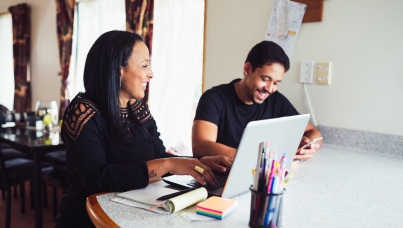Half of all NZers believe that abortion should be permitted if a woman wants it
The Ipsos Global Advisor Study regularly asks respondents from around the world, including over 500 in New Zealand for their views on topic issues.
Key findings on abortion from the survey include:
- Overall, three quarters of New Zealanders (77%) say abortion should be permitted either whenever a woman decides she wants one (51%) or in certain circumstances, such as if a woman has been raped (25%). This result is higher than the global average of 68% and puts New Zealand in ninth position in the world in relation to these views.
- The proportions of New Zealanders who agree abortion should be permitted in relation to personal choice or certain circumstances are very similar across different age groups and genders, with the most variation seen in relation to household income.
- Conversely, 10% of New Zealanders believe it should not be permitted under any circumstances, except when a mother’s life is in danger and a further 4% believe should never be permitted regardless of the circumstances involved.
- New Zealand (77%) is on a par with Hungary (78%), Australia (75%), Canada (74%) and Poland (74%), with regard to abortion being permitted whenever a woman decides she wants one or in certain circumstances. Respondents in Malaysia (60%) and Chile, Peru, and Columbia (all 40%) on the other hand were the most likely to agree that abortion should not be permitted under any circumstances (unless a mother’s life is in danger) or never be permitted.
The same Global Advisor Study also invited respondents to answer questions relating to feminism, equality, and women’s rights. Some key findings include:
- Amongst female respondents, 23% agreed “very much” with the statement “In my country, I have full equality with men and the freedom to reach my full dreams and aspirations”, with a further 53% agreeing “somewhat”. At 76% agreement (either “very much” or “somewhat”), New Zealand women were placed fourth in the world compared to the global average of 60%. The only countries ranked higher were China (92%), Russia (83%), and Malaysia (78%). Conversely, female respondents from Brazil (39%), Japan (33%), Spain (28%), and Turkey (19%) were the least likely to agree with this statement relating to equality.
- Just over two thirds (68%) of New Zealanders agree (either “very much” or “somewhat”) that there is currently an inequality between women and men in terms of social, political, and/or economic rights.
- However, most New Zealanders believe in equal opportunities for men and women (95%), and the majority define themselves as feminists (63%) and would advocate and support equal opportunities for women (61%).
- More than half (58%) of New Zealand males define themselves as feminists, along with 68% of females.
- There are still 18% of New Zealanders saying they are scared to speak out and advocate for the equal rights of women because of what might happen to them. This result is not dissimilar to the global average (25%) with results from Australia at 27% and Great Britain 17%.
- A higher proportion of New Zealand females (22%) are scared to speak out and advocate the equal rights of women because of what might happen to them than males (14%).
Additionally, the global average for agreement with the statement “I believe that women should not aspire to do anything outside of the household and should produce children and tend to their family” was 17% compared to 11% in New Zealand, 16% in Australia, and only 10% in Great Britain. Specifically, only 2% of New Zealanders agreed very much or somewhat agreed (10%) with this statement about women’s more “traditional” role in society.
Commenting on the findings, Amanda Dudding, Research Director, Public Affairs, Ipsos New Zealand, said: “There is no doubt that currently abortion is a hot topic. At Ipsos we wanted to understand how New Zealanders were feeling about the subject as the law revision options are being discussed. We found that around half of New Zealanders, or 51%, believe that women should be able to make the choice themselves regardless of circumstance and a further 25% believe abortion should be permitted in certain circumstances. It’s interesting to note there was not a huge difference between the proportion males and females agreeing with this.”
Carin Hercock, Managing Director, Ipsos New Zealand, added: “It is great to see that the majority of New Zealand women feel they have equality with men and that we are ahead of the global average in that regard; however, with nearly one in four New Zealand women disagreeing with this sentiment, we still have a way to go. Having said that, with more than half of New Zealand men and 68% of women identifying as feminists, we should continue to see improvements.
At Ipsos we believe it is important to understand how New Zealanders are feeling about the big social and cultural issues of our time, and so regularly survey the population to gain a better understanding of the country and world we live in.”
About this Study
These are the findings of a Global Advisor Study which asked questions relating to abortion and feminism in the same survey. For the abortion study, a total of 19,524 interviews were conducted between Friday February 22nd to Tuesday 12th March 2019 among adults aged 18-74 in the US, Canada, South Africa and Turkey, and adults aged 16-74 in all other countries. For the feminism study, a total of 9,817 interviews were conducted during the same time period among adults of the same age. A total of 588 New Zealanders aged 18-74 answered these questions.
The survey was conducted in 28 countries around the world via the Ipsos Online Panel system. The countries reporting herein are across Argentina, Australia, Belgium, Brazil, Canada, Chile, China, Colombia, France, Germany, Great Britain, Hungary, India, Italy, Japan, Malaysia, Mexico, New Zealand, Peru, Poland, Russia, Serbia, South Africa, South Korea, Spain, Sweden, Turkey, and the United States.
Between 500 and 1,000+ individuals participated on a country-by-country basis via the Ipsos Online Panel. The sample was 1,000+ in Australia, Brazil, Canada, China, France, Germany, Great Britain, Italy, Japan, Spain, and the United Stated of America. In all other countries, including New Zealand, the sample was 500+. The precision of Ipsos online polls is calculated using a credibility interval with a poll of 1,000 accurate to +/- 3.5 percentage points and of 500 accurate to +/- 5.0 percentage points. For more information on Ipsos’ use of credibility intervals, please visit the Ipsos website.
In countries where internet penetration is approximately 60% or higher, the data output generally reflects the overall population. Of the 28 countries surveyed online, 17 yield results that are balanced to reflect the general population: Argentina, Australia, Belgium, Canada, France, Germany, Hungary, Italy, Japan, New Zealand, Poland, South Korea, Spain, Sweden, Great Britain, and the United States. The remaining countries surveyed – Brazil, China, Russia, India, Mexico, South Africa, and Turkey – have lower levels of internet connectivity and reflect online populations that tend to be more urban and have higher education/income than the general population.
Where results do not sum to 100, this may be due to computer rounding, multiple responses, or the exclusion of “don't know” or “not stated” responses. Data are weighted to match the profile of the population.
This study did not have any external sponsors or partners. It was initiated and run by Ipsos, because we are curious about the world we live in and how citizens around the globe think and feel about their world.



